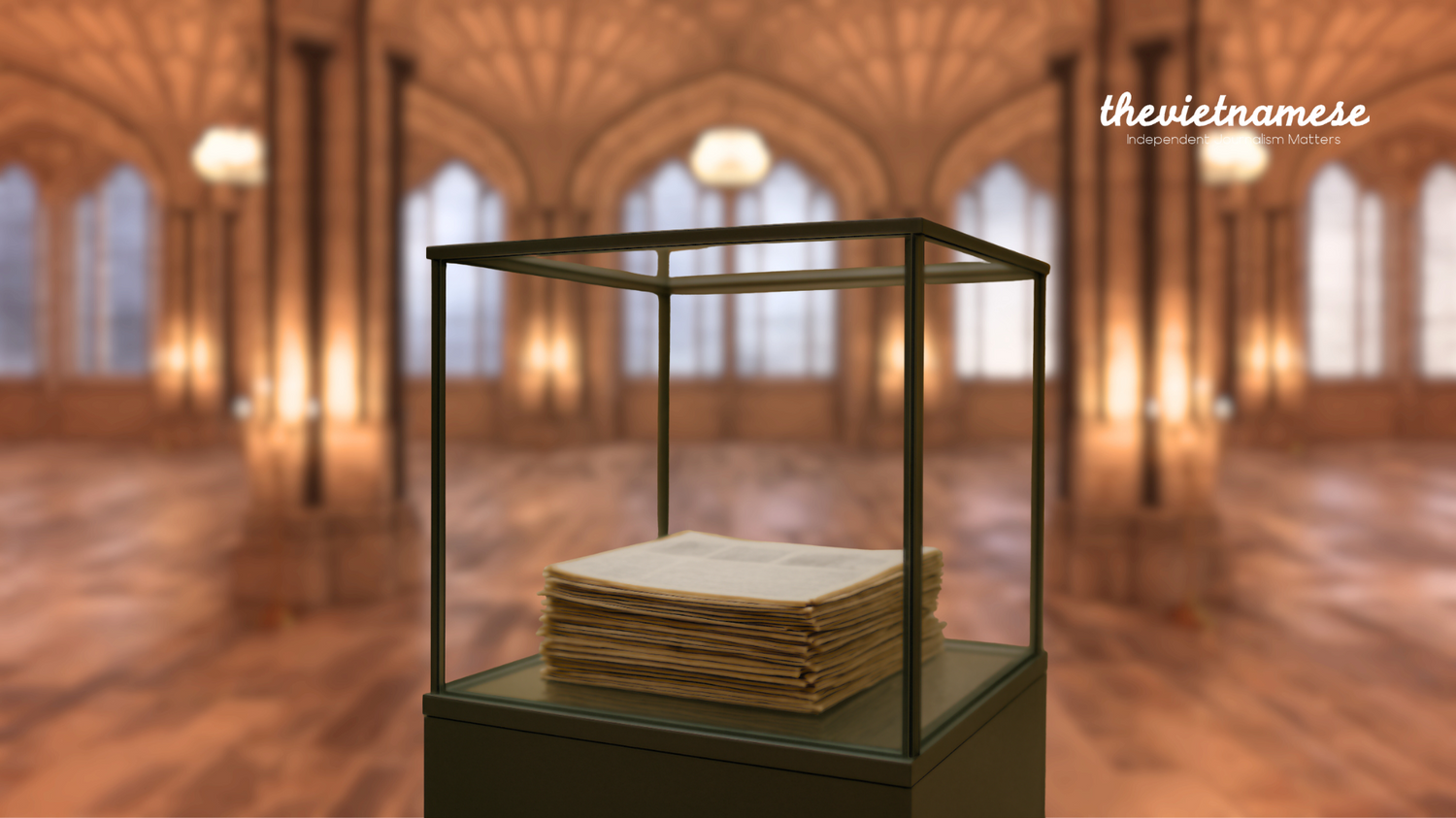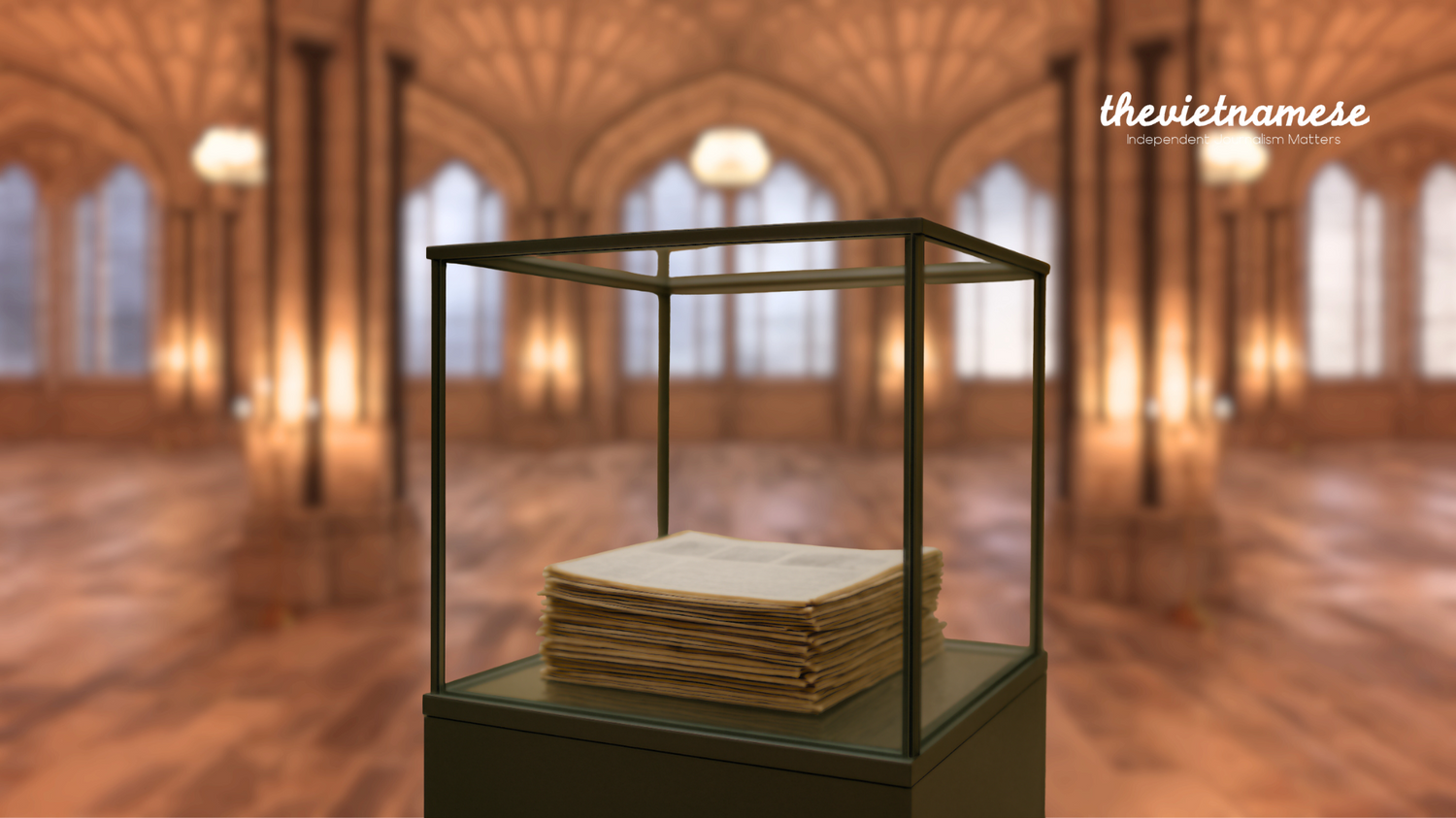
The recent and unsettling silence of the media surrounding the sudden death of Dr. Hoàng Phương Mai offers a vivid example of what I would call “the press standing on the sidelines.”
Excuses to justify the media’s indifference are easy to find. “Everyone dies eventually,” some might say, or “People die every day.” With countless tragedies occurring, who could possibly care about them all? When readers do not care, do not click, and do not choose to read, why should journalists bother to write?
In today’s market economy, where news outlets compete fiercely by the hour, the concept of “agenda-setting”—the journalistic practice of selecting only those stories expected to attract clicks and attention—is no longer merely a “strategy” that editors follow. It has become an important rule of the game, or more precisely, a survival skill for the industry. To disobey it is to be eliminated.
Consequently, stories that draw little public interest are considered unworthy of a journalist’s effort or ink. Even if such a story were written, it would hardly catch the eye of “professional” and “discerning” editors—those trusted by newsroom owners precisely because they understand the audience’s ever-demanding taste for consumable news.
However, the story of Dr. Hoàng Phương Mai, is a different case. According to accounts from her longtime acquaintances and information compiled by an observer—though not yet independently verified—a preliminary outline of the events can be drawn.
The 49-year-old scholar, a former researcher at the Institute of Hán–Nôm Studies, chose to end her life on Aug. 16, 2025, after a long period of confronting what she believed was an unjust disciplinary decision from her institution. She was formally dismissed in March 2025, following three consecutive years of being rated as “failing to fulfill her duties,” despite being regarded by many colleagues as intelligent, dedicated, and capable.
This “failure,” some suggest, stemmed from the Vietnam Academy of Social Sciences—the parent institution of the Institute—holding her responsible for the loss of several ancient books from the library three years earlier. No culprit in that case has ever been found. According to analysis by Dr. Nguyễn Xuân Diện, the matter likely involves deeper, unrelated causes that had little to do with Dr. Mai herself.
Believing she was wronged, she refused to yield, rejecting any suggestion that she withdraw her complaints or admit fault to be reinstated. Every day, she brought her laptop to the institute and sat in the lobby from morning until evening—without pay, title, or acknowledgment. For months, as colleagues passed by, she maintained this silent protest while her letters of appeal went unanswered. Until the day she chose to end her life and her suffering.
Setting aside the precise accuracy of these accounts for a moment, it is clear this was not a trivial case. It is a story that could have stirred the public conscience had it been widely reported. Indeed, Facebook posts from the late doctor’s friends and other public figures have already drawn strong engagement across social media. For a story this “hot,” why has the press remained silent?
When the press stands aside, it leaves a vast information void. Dr. Mai’s story now survives only in fragments of personal recollection, riddled with unanswered questions that may never be verified if those “inside” the situation remain as silent as those “outside.” Why was she dismissed? Was the decision justified? Was it connected to the rumored book loss? Was she wronged? Why did the Institute of Hán–Nôm and the Vietnam Academy of Social Sciences delay responding to her petitions? Was there a deeper reason for their hesitation?
And yet, when the media steps back, an even greater question surfaces: what forces compel such silence?
Self-censorship and the quiet removal of “sensitive” stories—out of fear of authority or to avoid risk—are neither rare nor difficult to understand. When journalism reduces its mission to revenue and its goal to maintaining stability, fear inevitably multiplies: fear of corporations, of the public, and of the state. In that narrowing horizon, only a few pursuits remain—profit, market share, and influence.
Particularly in societies where the press is tightly controlled, such as Việt Nam, the sources of fear are nearly impossible to count. Fear itself has become a habit—a mindset and a reflex that precedes every journalist’s decision. Institutional frameworks like the 2016 Press Law and the 2015 Penal Code have long stood as an ever-present executioner looming over every reporter, ready to “enforce the law” at the slightest sign of deviation.
At the end of 2024, the introduction of Decree 147/2024 added yet another watchful judge tasked with monitoring any act of online expression from any individual—journalist, official, or ordinary citizen. So-called “independent journalists” and “citizen reporters,” already under surveillance for years, now find themselves under even closer scrutiny.
Recent reports by independent organizations like Freedom House, Project 88, and the Associated Press all point to the same conclusion: Việt Nam’s Cybersecurity Law and Decree 147 have deepened what scholars call the “chilling effect”—a pervasive climate of silence and self-censorship spreading not only through the press but across public discourse itself.
Thus, to use the phrase “the press standing on the sidelines” as a rebuke of media silence and indifference might seem too harsh, perhaps even unfair. In an environment of speech hemmed in on all sides, under the hammer above and the anvil below, even the most earnest journalists may choose silence as a form of “wise self-preservation.”
But something still feels amiss. If those we call “good people” choose indifference and silence in the face of injustice, are they truly good? Can they still be called good?
The familiar phrase, “the silence of good people,” reveals itself as a self-contradiction: if one is truly good, one does not remain silent; and if one chooses silence, one is no longer good. What remains is perhaps a counterfeit goodness—a false nobility cloaked in the guise of wisdom.
Amid the wave of anti-Asian sentiment in the United States in 2021, then-President Joe Biden invoked the slogan “silence is complicity” to urge the public to take collective action against prejudice. That statement, of course, is not an absolute truth. There are circumstances where silence is justified—when the risks are too great, when danger is imminent, and when speaking out could endanger others.
Yet some people cannot remain silent. Some professions must not. Those who uphold the law cannot be mute in the face of illegality. If journalism defines itself by truth and journalists anchor their calling in the public trust, then what truth is too suspicious to pursue? What injustice can be ignored? What wrongdoing can ever lie outside the page?
And so, the story circles back to that word—“outsider.”
When we find reasons to see ourselves as “outside the matter,” any responsibility can be evaded, even when the wrong unfolds before our eyes and even when a single, gentle word could have made a difference.
Tịch Dạ wrote this article in Vietnamese and published it in Luật Khoa Magazine on Aug. 23, 2025. The Vietnamese Magazine has the copyright of its English version.

